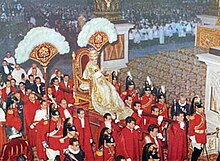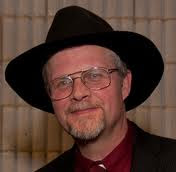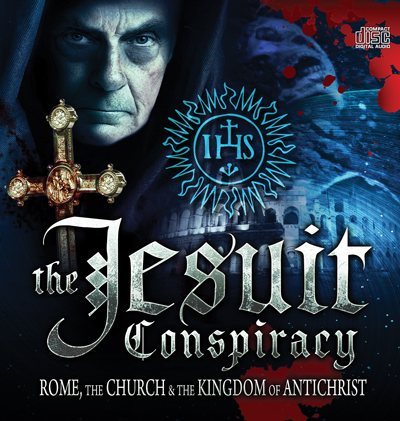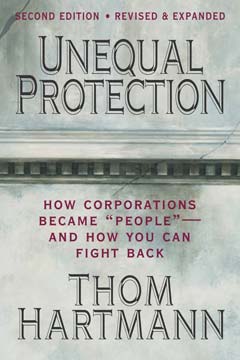I have backed off of affirming the Holy Spirit’s personhood as a dogma. I think there is too much we don’t know about the Holy Spirit to be dogmatic about his personhood.
I have recently received a number of requests for information on the issues of Nicene Trinitarianism and my exchanges with Robert Letham (where he informed me that Robert Reymond recanted his criticisms of Eternal Generation when he was received into the OPC in 2008). Letham refused to allow our dialogue to be public (Hint Hint).
I have prepared this concise summary of articles on the issues of Absolute Divine Simplicity, Triadology and how it affects everything else in Systematic Theology. I have also included the 11 questions I asked of Letham so you can ask your pastor or seminary professors. I am going to post this as a page on the left hand side of my blog titled: “Drake’s Triadology Stuff”. These are arranged in order of conceptual priority. That is, each section of articles is necessary to understand the next section. Hopefully this will aid in understanding.
I have a offered a brief tract, which is available here. This tract provides the substance of all of my writings on this issue. For a bare bones definition of Nicene Monarchism see here. Here is a 15 minute video summary of all these issues: Drake Shelton’s recent YouTube reflections on the Monarchy of God the Father and it’s implications (http://articulifidei.blogspot.com) See also his other articles that he linked to this article. David Waltz and I agree on just about everything on these issues. He is not a Scripturalist but our explanation of the Trinity is identical. Ryan Hedrich has also written an excellent summary of these issues here: Ryan Hedrich’s Summary of My Nicene Triadology. See also Dr. Michael Haykin’s Book Tri-Unity Refuted.
I. Pagan Theology Proper; Introduction to Neoplatonism and Absolute Divine Simplicity (ADS); How it developed through Origen into the Scholastic and Protestant Scholastic Period; The Eastern Alternative in the Essence and Energies Distinction; The Fundamental Difference Between Eastern and Western Conceptions of Simplicity; The Nature-Will Distinction fundamental to Athanasian Trinitarianism and Creation Ex Nihilo
The Pagan Doctrine of God and its Influence on Early Christian Theology
Does God Transcend Human Language?
The Root of Karl Marx’s Dialectic: The Filioque Heresy
Is Triunism Really the Product of a Neo-Platonic Conspiracy?
Saving Faith and Truth as Encounter in Plotinus, by Drake
Do You Know What You Believe? Part 3 What is God? Part A
Origen’s Mistake and One of Dr. Clark’s Mistakes
Divine Simplicity 1
Francis Turretin’s Neo-Platonism in Divine Simplicity, by Drake
W.G.T. Shedd on the Monad; The One God
Do You Know What You Believe Part 4; What is God? Part B The Trump Argument for Scripturalism
The Essence and Energies Distinction in David Bradshaw Refuted
James Anderson’s Mistaken Interpretation of Eastern Triadology
‘Free Choice in Maximus the Confessor’ by Joseph P Farrell Reviewed by Drake Shelton
Debate with Hyper Calvinist on Nature and Will Distinction
Darkness: A Consistent Hyper-Calvinist
How to Identify Absolute Divine Simplicity (ADS); Exposing Paul Helm’s Monad
Taking Steve Hays to Task on Archetypal/Ectypal Knowledge’s Dependency on Divine Simplicity
Just Replied to James Anderson’s Article “God Without Parts”
Serious Issues Being Dealt With At James Anderson’s Analogical Thoughts
James Anderson Maybe Deleting My Comments Backfired On You
Creation Ex Nihilo
Creation Ex Nihilo-Early Clark vs. Later Hyper-Calvinist Clark
Dialogue with a Pantheistic Chardinian: (Does a subject have to have an opposite to be so defined?)
1. Is an Infinite God Dependent on Finite Objects to Be So Defined As Infinite?
2. Did you know there are two contradictory views of the Trinity?
3. Is the One God a Person or a Monad?
II. Problems ADS Resulted In
Another Problem for the Scholastics: Eternal Generation or Simplicity, Take Your Pick; You Cannot Have It Both Ways, by Drake –
Augustine on the Unipersonality of God, ed. Drake
Do You Know What You Believe? Part 5; What is God? Part C Procession of the Spirit
My exchange with TFAN on these issues
Against Ancient Christianity (Absolute Divine Simplicity is behind the Anchorism of both the Eastern and WesternPatristicChurches. Anchorism controls their views of ethics and redemption which of course controls their view of the Atonement. The denial of legal forensic categories, legal guilt, and penal substitution all come out of Anchorism which comes out of Neoplatonic ADS Monadism)
III. Anchoretic Ecclesiology Grew Out of Neoplatonism
Dionysius the Areopagite; The Church’s Big Mistake; First Century Disciple of Paul?; Neoplatonism
Pseudo Dionysius the Areopagite’s Neoplatonic Influence on Church Authority (From 6:00-9:00 The Roman Doctrine of the Papacy and Neoplatonism are shown to be connected)
IV. A Vindication of Nicene Triadology Against ADS
Homoousios;Generic or Numeric?
JND Kelly on Homoouios; Generic or Numeric?
Debate with Jnorm on the meaning of Homoouios
The Meaning of Homoousios in Basil the Great. Monoousios Rejected
Nicene Creed 325 vs. Constantinople 381 here here and here.
A Theological Introduction to the Mystagogy of Saint Photios by Joseph Farrell
Photius’ Mystagogy
The Hypostatic Monarchy of the Father; Scripture Exegesis
The Economical and Ontological Trinity; What is it?, by Drake
The Eternal Generation of the Son
Revelation 3 and Colossians 1; Strong for Eternal Generation
Tertullian’s Explanation of the Monarchy of the Father: Brilliant!
Eternal Generation; A Necessity of Nature, Will or Hypostasis?
Which Divine Person Should We Worship?
James White The Heretic Part 2
V. Historical Precedent For a Protestant Nicene Triadology
Cyril Lucaris and the Synod of Jerusalem
Cyril Lucaris’ Rejection of the Filioque, by Drake
Samuel Clarke’ Scripture Doctrine of the Trinity
The Monarchy of the Father and the Belgic Confession
VI. Alternative View to the Western Neoplatonism and the Eastern Neoplatonism in Gordon Clark
Ontological compatibility between God and Man; Thus man can understand God at least proportionally: Is God beyond being/predicaton? Gordon Clark Language and Theology Part 1; Is God Beyond Being/Predication? Gordon Clark Language and Theology Part 2
Divine Infinity; The Pagan Dialectic; Denial of Creation Ex Nihilo and Idolatry Connected
Emanation, Eternal Generation and Creation: What’s the Difference? by Drake
Divine Simplicity 2
Scripturalism’s Immediate Knowledge Related to Infant Salvation by Drake
What You See at the Bottom of the Clark-Van Til Rabbit Hole; Scripturalist Christianity vs Neo-Platonism
A Scripturalist Construction of Greek and Nicean Triadology Part 1
A Scripturalist Construction of Greek and Nicean Triadology Part 2 Eternal Generation
A Scripturalist Construction of Greek and Nicean Triadology Part 3; The Procession of the Spirit
How then Should We Pray? ; Case Studies in Nicene Triadology vs. Thomistic and Van Tillian Sabellianism
Triunism and Sabellianism; Is There a Difference?
Issues Concerning Creation; Pantheism;Panentheism;Idealism; See Chapter 4 of my ST
68 Theses Against Jnorm’s Eastern Orthodox Theology Proper: Case Studies in Ad Hoc Reasoning
The Communication of Attributes (Green Baggins) See comment section beginning with post 168 where I have an exchange with Perry Robinson on God ad intra.
122 Page Dialogue with Jim Dodson (FROM TRUE COVENANTER AND SWRB)-HE SUBSEQUENTLY REFUSED TO ALLOW HIS COMMENTS TO BE MADE PUBLIC
A Full Refutation of Steve Hays’ Van Tillian and Thomistic Theology Proper
Is Drake Teaching the Heresy of Joachim of Flora?
Is the One God a Person or a Monad? In Samuel Clarke
Sundry Philosophical Queries Regarding the Trinity
Eric Jon Phelps On The Triune God Refuted
In Christ-Participation in Divine Nature; Sundry Philosophical Queries Regarding the Trinity
Richard Muller VS. Samuel Clarke on the Trinity-Samuel Clarke was not an Arian!; Philosophical Realism Butressed by Orthodox Triadology
Athanasius and Hilary of Poitiers on the Homoiousians
VII. Scripture index
Genesis 1; Elohim
Gen 19:34 Replying to ANNOYED PINOY’s Comments at Triablogue Replying to ANNOYED PINOY’s Comments at Triablogue
Isaiah 6; Who is it that in Isaiah 6?-Yahistic language
Isaiah 9:6 Samuel Clarke on the Trinity
Dan 7; WHO IS THE ANCIENT OF DAYS?; WHO IS THE KING OF KINGS? by Xu Yigang
Mat 19:17; Mar 2:7; Mat 19:17 and the Trinity
Mat 24:36; Is Christ Omniscient as Well as The Father?
Mat 27:46;Samuel Clarke on the Trinity
Matthew 28:19; Does One Name Equal Three Names?
Mar 2:7; Mar 2:7; Mat 19:17 and the Trinity
Mar 10:18 Mat 24:36; Is Christ Omniscient as Well as The Father?
Luke 24:25 Sundry Philosophical Queries Regarding the Trinity
Romans 9:5 Romans 9:5 and the Trinity; The Orthodox vs. The Sabellian Use of Romans 9:5; Hilary of Poitiers Distinguishes the Orthodox vs. the Sabellian Use of Romans 9:5
John 1:3; Colossians 1:16 and the Trinity
John 1:18 Does John 1:18 Teach that Jesus is the Only God?
John 10:30 Greek Considerations with Reference to John 10:30, ed. by Drake Shelton
John 14:28 The Early Fathers on John 14:28
John 17:5 Conversation with an Arian on the Pre-Existence of Yeshua
John 20:28; “God” is used as a Greek replacement for Elohim.David Waltz on Thomas’ Proclamation in Jn 20:28; John 20:28; Hilary of Poitiers Puts all Doubts of the Father’s Monarchy to Rest
Acts 2:33 Replying to ANNOYED PINOY’s Comments at Triablogue
Acts 13:33 Samuel Clarke on Acts 13:33; Was the Son Really Begotten in Eternity or in Time?;
1 Cor 8:6 Jesus As The One Lord; 1 Cor 8:6; 1 Cor 10:9
1 Cor 10:9 Jesus As The One Lord; 1 Cor 8:6; 1 Cor 10:9
Col 1:16; Colossians 1:16 and the Trinity
Col 2:9; Samuel Clarke on the Godhead
1 Tim 3:16 Who was Manifest in the Flesh?
Titus 2:13; Who is God our Savior?
Heb 1:6 Sundry Philosophical Queries Regarding the Trinity; Incarnational Sonship?[By Paul Liberati]
2 Pet 1:1; Who is God our Savior?
1Jn 5:7 Greek Considerations with Reference to John 10:30, ed. by Drake Shelton
1 John 5:20; 1 John 5:20; The True God and Eternal Life-The Father or the Son?; Athanasius on 1 John 5:20; Vincent and Wallace on the Sterility of 1 John 5:20 for the Sabellian Interpretation
Rev. 1:8, 17, 2:8, 22:13 Who is the Alpha and the Omega, THE ALMIGHTY?; Tertullian Exposes our Sabellian Triunist Opponents
Rev 3:21 Replying to ANNOYED PINOY’s Comments at Triablogue
VII. 11 Questions
1. Absolute Divine Simplicity (ADS): Where is it in the Bible by either a direct assertion or logical inference?
2. When Turretin says, Volume 1. 3rd Topic. Q 7
“Proof that God is perfectly simple. IV. This proved to be a property of God: (1) from his independence, because composition is of the formal reason of a being originated and dependent (since nothing can be composed by itself , but whatever is composed must necessarily be composed by another; now God is the first and independent being, recognizing no other prior to himself) ; (2) from his unity, because he who is absolutely one, is also absolutely simple and therefore can neither be dived nor composed; (3) from his perfection, because composition implies ***********IMPERFECTION******************* inasmuch as it supposes passive power, dependency and mutability. ” Institutes of Elenctic Theology Volume 1 (P & R Publishing: Phillipsburg, NJ, 1992), pg. 191
And Muller in an exposition of Bonaventure, in explaining the Scholastic doctrine of Simplicity says, “there is something prior to every imperfect or composite being.” (Muller Vol. 4, pg. 41) Do you admit that both of these authors are operating directly off of Plotinus where this thinking led him back ultimately to an absolute Monad and not a drop of scripture?
3. Do you agree that Augustine was highly influenced by Plotinus?
4. Do you agree that the doctrine of analogy of proportionality (Thomistic view of epistemology) is sourced in ADS? The other big issue is the Western Scholastic dialectic between the infinite and the finite. My pastor as well as other people use this to avoid any real connection between man and God not understanding the Christological implications. The entire problem with this construction (analogy of proportionality) is that it eliminates the possibility of a hypostatic union in Christ. Christianity teaches that humanity and divinity united metaphysically/really at the level of hypostasis. Aquinas’ construction is exposed as Adoptionism and at best Nestorianism by Jules Grisham. Grisham states in his Felled By “Good Pleasure” An Examination Of The Condemnation Of The Grammatico Historical Method Of Interpreting Scripture, As It Was Developed In The Exegetical School Of Antioch,
“Theodore, then, to his own thinking, was only being consistent when he taught that the human nature of Jesus was essentially distinct from the divine nature of the Son-Logos. Because he understood hypostasis as referring to the concrete instance of a nature (in the sense that a person is a concrete instance, a particular expression, of human nature), and because, according to his fundamental understanding concerning the radical “other-ness” of God, he insisted that the divine and human natures could not be hypostatically joined without corruption of the divine, Theodore held that there is an inhering dualism in Christ’s person. Accordingly, he taught that we must think of Christ’s union not as a hypostatic one (that is, of substance) but as a prosopic one (that is, of manifestation and benevolence). Prosopon means “face,” “role” (referring to drama as well as to social status), or “person,” in the societal-functional sense –i.e., what one does. And the concept he used to explain how this prosopic union came to be and remains intact is “assumption.”(pg. 27)
I wonder how Theodore would take Aquinas’ “extrinsic bond… a third thing to which the signification of a particular belongs primarily”. Upon examination I can find no difference between the two. Theodore’s Prosopon was just that; namely a product of the union of the two natures: a third thing as the common bond between the two natures. This is precisely the opposite of what Scripturalism teaches. We believe in a univocal participation in God and deny that God is totally other as the Van Tillians, the Scholastics and the Neoplatonist Eastern Church teaches. Gordon Clark says in Three Types of Religious Philosophy (Jefferson Maryland, The Trinity Foundation,1989) by Gordon Clark pg. 123 –Dogmatism-Realism
“To be sure, Christian dogmatism does not accept the unaltered World of Platonic Ideas. The Philonic Interpretation is better. [By the way Philo’s construction posited the Ideas in the mind of God. DS] Still better is the replacement of Ideas (minus predicates) by propositions or truths…Christian dogmatism therefore must be realistic. The real object of knowledge is itself present to the mind…There are of course other thoughts, objects, or realities. Every Biblical Proposition is one. These never change nor go out of existence, FOR THEY ARE THECONSTITUENTS OF GOD’S MIND…We know God directly for in him we live and move and have our being.” Clarksays again, “The scripture presents the relationship between the mind of God and the mind of man as a much more intimate relationship than is commonly believed. In 1 Corinthians 2:16 the apostle says, ‘we have the mind of Christ’. On this verse Meyer comments, ‘Since Christ is in them…their nous, too, can be no mental faculty different in kind from the nous Christou, but must, on the contrary, be as ideally one with it, as it is true that Christ himself lives in them.’ See also Philippians 2:5,‘Let this mind be in you, which was also in Christ Jesus.’ Of course these verse do not equate the person of Christ with out person, either pantheistically or existentially. Their meaning is that our mind and Christ’s mind overlap or have a common area or coincidence in certain propositions…Christ’s mind and our mind only overlap: they are not coextensive. Plato may require omniscience but Christianity uses revelation; and man knows only so much as God has revealed to him. In my publications I have never claimed more than a partial knowledge forman.” (The Philosophy of Gordon Clark, pg. 406-407)
Aquinas’ Nestorianism at this point is again reiterated by FrancisTurretin when he says,
“For the Son of God only is ‘the image of the invisible God’ (Col1:15)-the essential and natural, and no mortal can attain to it because the finite cannot be a partaker of the infinite. And if we are said by grace to be ‘partakers of the divine nature’ (2 Pet 1:4),
this is not to be understood of an essential, formal and instrinsic participation, but an analogical, accidental and extrinsic participation (by reason of the effects analogous to the divine perfections which are produced in us by the Spirit after the image of God).” Institutes of Elenctic Theology Vol. 1 (Phillipsburg, NewJersey: P&R Publishing, 1994), pg. 465
An accidental connection between humanity and divinity? That is Adoptionism and Nestorianism. I posit a direct, univocal and real participation in God. We are made in God’s real image, that is, the logos of our image is uncreated, and were given language
structures that in category are uncreated.
5. If so, do you agree then that this ADS God could never give a real revelation but only a representational revelation?
6. Do you agree that ADS would by definition eliminate the possibility of 3 absolute hypostases in the Trinity?
7. Do you agree that Aristotle’s Metaphysics where Substance=Subject also commit its adherent to a single subject God with only the possibility that the three persons are three predicates/relations?
8. Do you admit that the ADS Monad of Plotinus was not a mind, specifically because it was simple, but the Nous/Mind was the first production of the Monad? If so, do you admit that anyone who holds to ADS must deny that God has a mind?
9. Do you agree that since the God of the West is based on ADS, which denies three absolute persons, the ontological source in Western Trinitarianism is not the Father but the divine nature? (Yes I’ve read Calvin’s comments on this and his assertion that the Logos is auto-theos is clearly a denial that the Father is the ontological source)
10. Do you agree that Augustine, operated off of ADS to construct Filioque when he asserts that since the Father causes (eternal generation + eternal procession) the Son must cause if he is truly divine (which is a collapsing of personal properties into the Monad)?
[P.S. You already admitted this: Through Western Eyes,“Plotinus [A major Neo-Plantonist writer] had posited a supreme being, the One, characterized by absolute simplicity (with no internal distinctions or particulars) In virtue of this simplicity, the One’s existence, nature, activity, and will are identical. Augustine saw common ground between the Christian doctrine of God and the NeoPlatonic idea of divine simplicity. In doing so he made the one essence of God primary. With no internal distinctions, great problems arose as to how to conceive of, and defend, the doctrine of the trinity…it is undeniable that there are crippling weaknesses in the Western doctrine of God (pg. 231-232)…In the West, the danger of modalism is very real, evident in all Western theology down to Barth and Rahner. If we start with the divine unity, expressed in the idea of absolute divine simplicity, the persons become problematic as real, personal, permanent, irreducible, and eternal ontological distinctions…Indeed. most Western Christians are practical modalists.”(pg. 238) In discussing the relationship between simplicity and the Filioque, you say, “As Ritschl suggests, Augustine’s beginning with the trinity rather than with the Father, as the Cappadocians had done, together with his stress on the divine simplicity, makes the Filioque almost inevitable.” (pg. 229) ]
11. How do you feel about Loraine Boettner, John Murray and Robert Reymond’s denial of the eternal generation of the Son?
IX. Sociological Implications of One’s Theology Proper
Check Mate; Theological Communism
Objections:
Association with Semi-Arianism-Sean Gerety; Unqualified
Platonic Idea- Is God-ness a Platonic Idea that Stands above the Divine Persons?
One-ness Theology
Conversation with an Arian on the Pre-Existence of Yeshua (One-ness uses the Arian idea of a decreed potential Sonship pre-existent to creation)
The Eternal Sonship of Christ Defended Against Marcellian Triunist Adoptionism
One-ness Theology denies the Eternal Sonship of Yahshua. They believe that he was begotten at his incarnation, not pre-existent to creation. This leaves his begotten-ness to refer to Mary and ignores the numerous passages that state he was begotten of the Father.
John 1:14 And the Word was made flesh, and dwelt among us, (and we beheld his glory, the glory as of the only begotten of the Father,) full of grace and truth.
John 1:18 No man hath seen God at any time, the only begotten Son, which is in the bosom of the Father, he hath declared him.
John 3:16 “For God so loved the world, that He gave His only begotten Son, that whoever believes in Him shall not perish, but have eternal life.
John 3:18 He who believes in Him is not judged; he who does not believe has been judged already, because he has not believed in the name of the only begotten Son of God.
John 8: 42 Jesus said to them, “If God were your Father, you would love Me, for I proceeded forth and have come from God, for I have not even come on My own initiative, but He sent Me.







-1-.jpg)


























[…] Church does not believe in the Trinity Mr. Lim. They believe in Plotinus’ Monad. See here: https://eternalpropositions.wordpress.com/drakes-triadology-stuff/ Like this:LikeBe the first to like this. […]